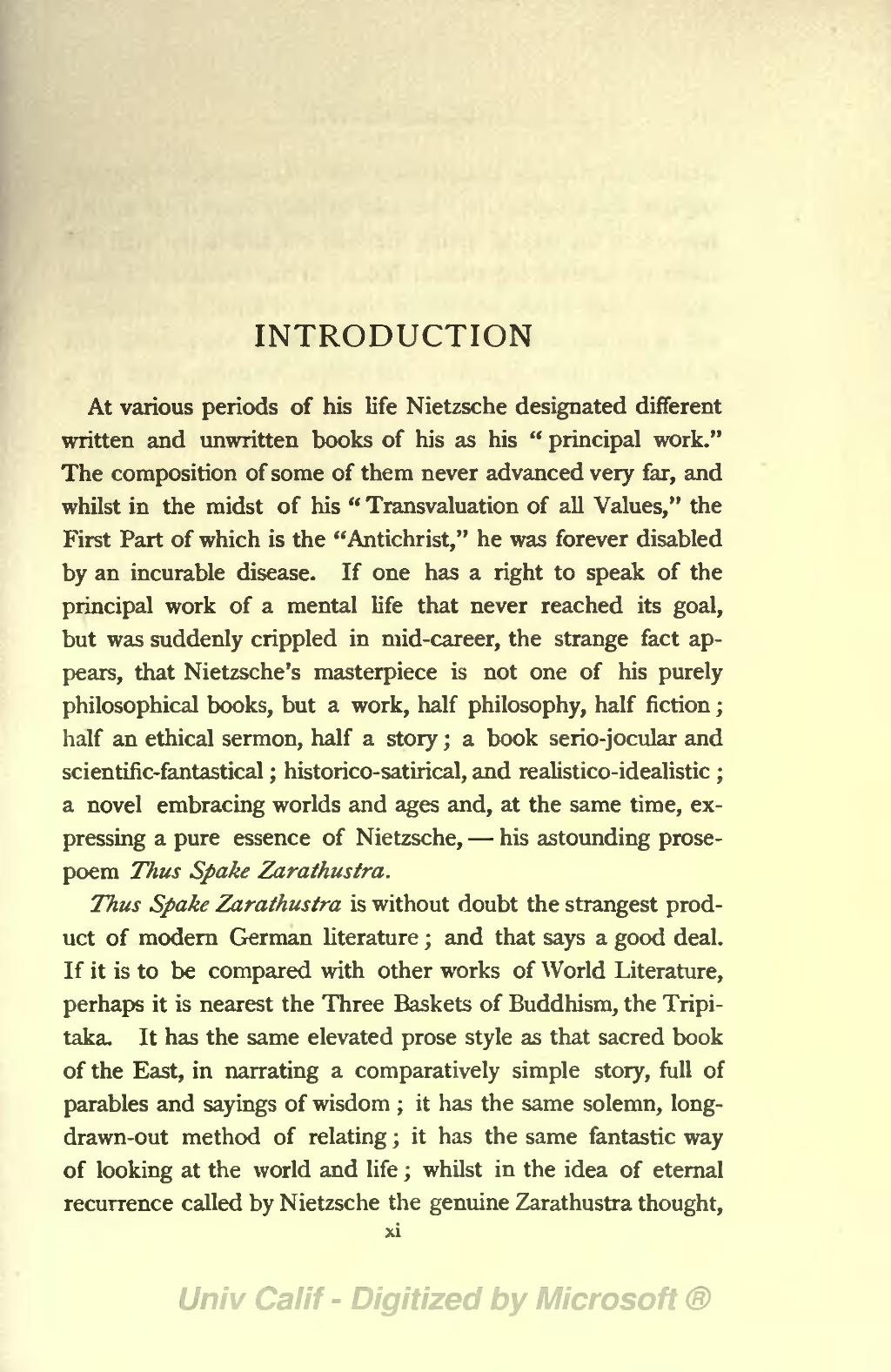INTRODUCTION
At various periods of his life Nietzsche designated different written and unwritten books of his as his "principal work." The composition of some of them never advanced very far, and whilst in the midst of his "Transvaluation of all Values," the First Part of which is the "Antichrist," he was forever disabled by an incurable disease. If one has a right to speak of the principal work of a mental life that never reached its goal, but was suddenly crippled in mid-career, the strange fact appears, that Nietzsche's masterpiece is not one of his purely philosophical books, but a work, half philosophy, half fiction; half an ethical sermon, half a story; a book serio-jocular and scientific-fantastical; historico-satirical, and realistico-idealistic; a novel embracing worlds and ages and, at the same time, expressing a pure essence of Nietzsche, his astounding prose-poem Thus Spake Zarathustra.
Thus Spake Zarathustra is without doubt the strangest product of modern German literature; and that says a good deal. If it is to be compared with other works of World Literature, perhaps it is nearest the Three Baskets of Buddhism, the Tripitaka. It has the same elevated prose style as that sacred book of the East, in narrating a comparatively simple story, full of parables and sayings of wisdom; it has the same solemn, long-drawn-out method of relating; it has the same fantastic way of looking at the world and life; whilst in the idea of eternal recurrence called by Nietzsche the genuine Zarathustra thought,

